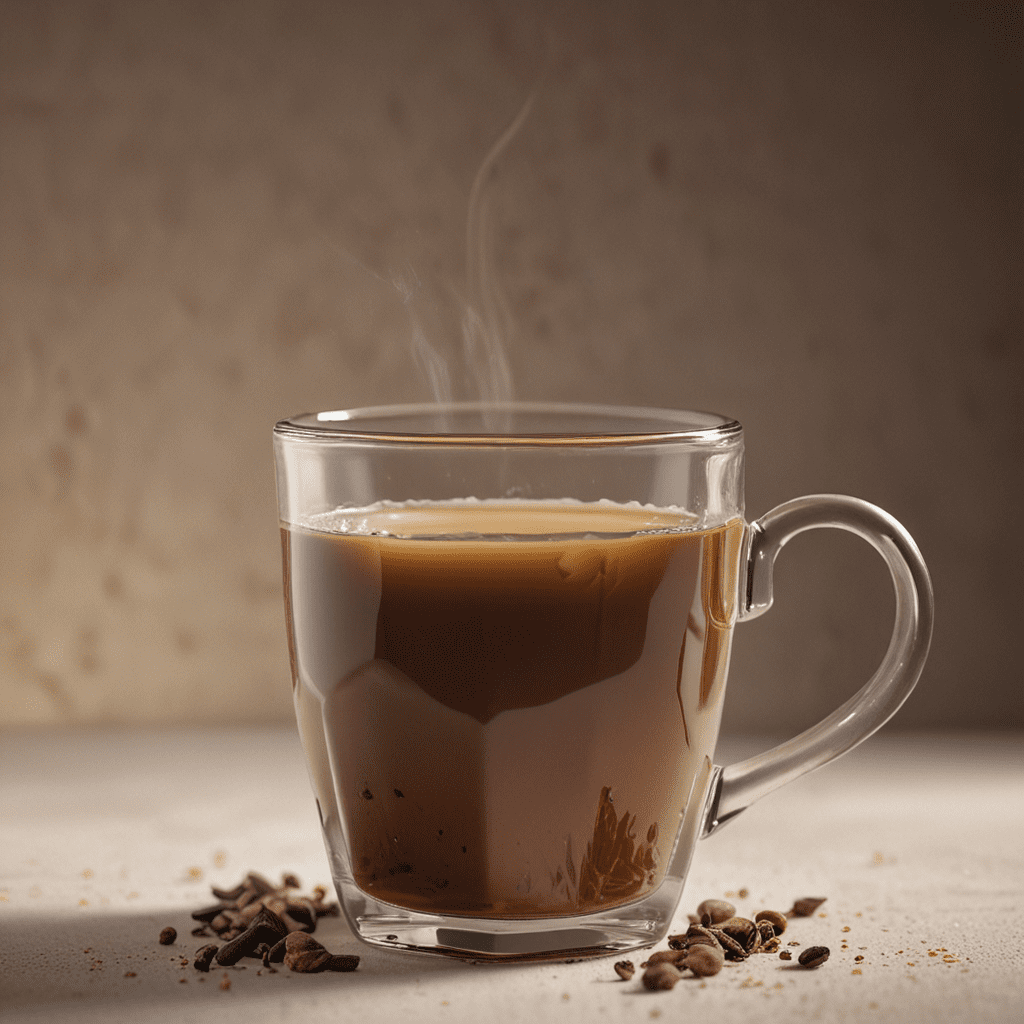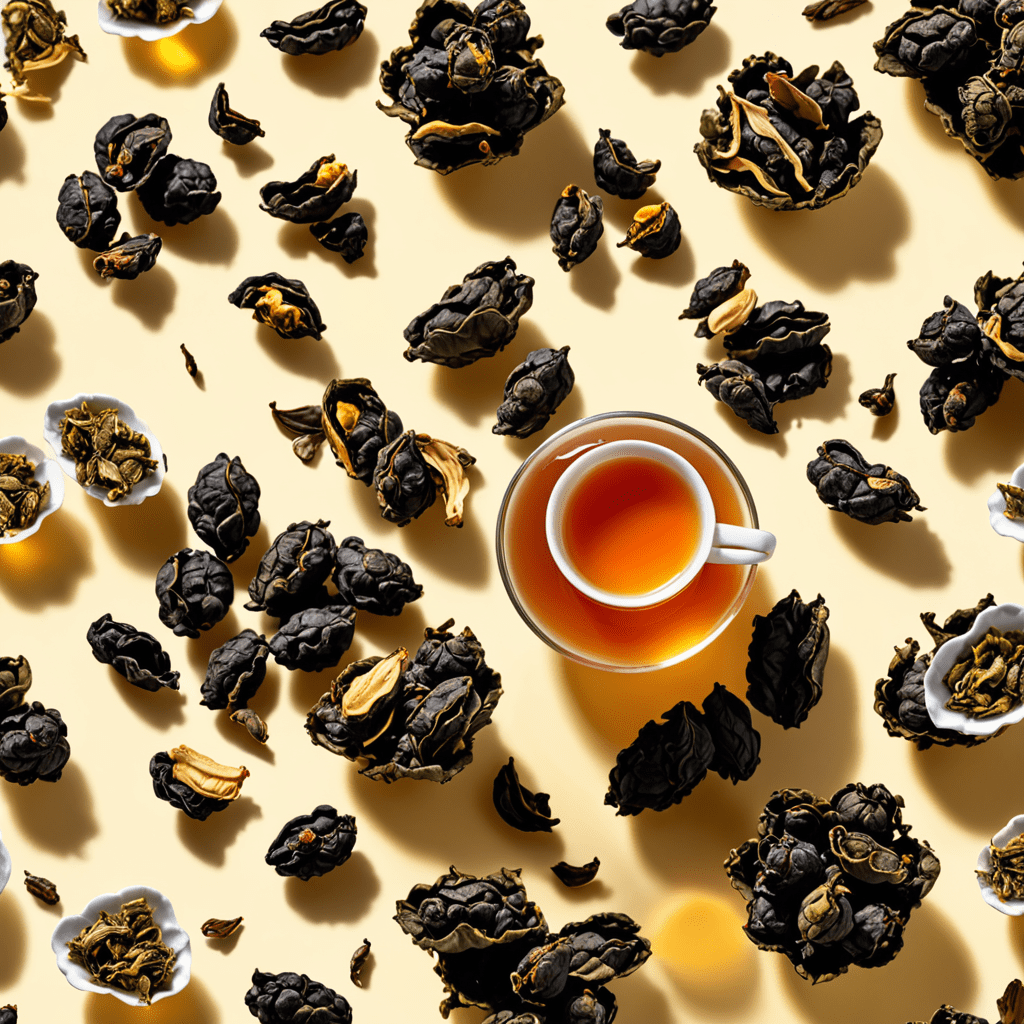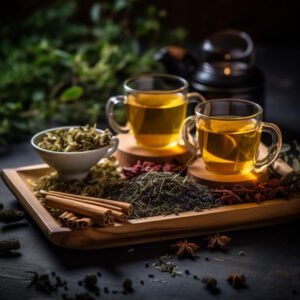Introduction to Chai Tea
Chai tea, an aromatic brew originating from the heart of India, has captivated tea enthusiasts worldwide with its captivating blend of spices and robust flavors. This traditional beverage, steeped in cultural significance, transcends its humble beginnings as a street-side drink to become a celebrated staple in cafes and homes across the globe.
Health Benefits of Chai Tea
Beyond its tantalizing taste, chai tea is renowned for its array of health-promoting properties. The spices infused within this fragrant concoction, such as ginger, cinnamon, and cardamom, possess inherent medicinal qualities. Chai tea has been linked to improved digestion, reduced inflammation, and enhanced immunity. Moreover, studies suggest its potential role in regulating blood sugar levels and promoting heart health.
Types of Chai Tea
The diverse landscape of chai tea encompasses a spectrum of regional variations and personal preferences. From the robust masala chai, brimming with a symphony of spices, to the delicate Kashmiri chai, infused with a hint of saffron, each variety exudes its own distinctive character. Black tea forms the foundation of most chai blends, yet variations incorporate green or herbal teas to cater to diverse palates.
Ingredients and Spices Used in Chai Tea
The essence of chai tea lies in its carefully curated symphony of spices. Ginger, with its invigorating warmth, melds harmoniously with the sweet undertones of cinnamon. Cardamom, with its subtle citrus notes, adds a refreshing twist. Cloves, boasting an aromatic allure, impart a depth of flavor. Black peppercorns lend a hint of piquancy, while star anise adds a touch of anise-like sweetness. Fennel seeds, with their cooling properties, balance the blend's warmth.
6. Traditional Method of Steeping Chai Tea
The traditional method of steeping chai tea is a time-honored ritual that brings forth the beverage's full flavor and aroma. Begin by heating water to a rolling boil, then reduce heat to medium-low. Add black tea leaves and spices to a tea infuser or muslin cloth and allow to steep for 5-7 minutes. Strain the tea into a serving pot and add milk or a milk alternative. Simmer for an additional 2-3 minutes to blend the flavors. Sweeten to taste with sugar or honey.
7. Alternative Steeping Methods
While the traditional method yields a classic cup of chai, alternative steeping techniques offer unique flavor profiles. Cold brewing, where tea is steeped in cold water for an extended period, produces a smooth, less bitter brew. French press brewing allows for a bolder flavor with a fuller body. Simply add tea leaves and spices to the French press, pour hot water over them, and let steep for 3-5 minutes before plunging.
8. Perfecting the Taste of Chai Tea
Mastering the art of chai tea requires experimentation and attention to detail. The ratio of spices to tea leaves can be adjusted to suit personal preferences. Experiment with different milk or milk alternatives, such as almond milk, soy milk, or coconut milk, to create a creamy texture and enhance the flavors. Sweeteners can be added to taste, but avoid overpowering the natural sweetness of the spices.
9. Accompaniments and Pairings for Chai Tea
Chai tea pairs harmoniously with a variety of snacks and desserts. Gingerbread cookies, with their warm spices, complement the flavors of chai, while biscotti provides a crispy contrast to the beverage's smooth texture. Sweet pastries, such as baklava or croissants, offer a decadent accompaniment. Chai tea can also be enjoyed as a dessert in itself, served with a dollop of whipped cream or a sprinkle of cinnamon.
10. Chai Tea Rituals and Traditions
In many cultures, chai tea transcends its role as a beverage and becomes an integral part of social gatherings and rituals. In India, chai is often served as a welcome drink for guests, symbolizing hospitality and warmth. In certain regions, chai is prepared in large communal pots and shared among members of the community, fostering a sense of togetherness. Chai tea has also found a place in spiritual practices, meditation, and yoga, where it is believed to promote mindfulness and enhance spiritual experiences.
FAQ
What is the best way to store chai tea?
Store chai tea in an airtight container in a cool, dry place.
How long does chai tea last?
Chai tea can last for up to 2 months when stored properly.
Can chai tea be made without milk?
Yes, chai tea can be made without milk. Replace milk with a milk alternative, such as almond milk or soy milk.
What is the difference between masala chai and regular chai?
Masala chai is a type of chai tea that contains a blend of spices, typically including ginger, cinnamon, cardamom, cloves, and black pepper. Regular chai may not contain all of these spices.
Is chai tea good for weight loss?
Chai tea may support weight loss due to its thermogenic properties, which can increase metabolism and burn calories.


